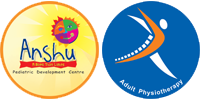
There is no Health without Mental Health Care
Mental health Care includes our emotional, psychological, and social well-being. It affects how we think, feel, and act. Caring for the Mind is as important and crucial as caring for the body, Infact one cannot be healthy without the other.
ANSHU’S mental health Care team is comprised of trained counselors, psychologists who use different approaches like rational cognitive behavioral approach, Cognitive behavioral approach and Rogerian Approach.
Services
Psychometric Evaluation
Psychotherapy
Psychotherapy refers to a range of treatments that can help with mental health problems, emotional challenges, and psychiatric disorders.
It aims to enable patients, or clients, to understand their feelings, and what makes them feel positive, anxious, or depressed. This can equip them to cope with difficult situations in a more adaptive way.
There are a number of styles and approaches in psychotherapy one of them is the behavior therapy approach.
Cognitive Therapy
Cognitive therapy starts with the idea that what we think shapes how we feel. Changing these beliefs can change a person’s view of events, and their emotional state. Cognitive therapy looks at current thinking and communication patterns, rather than the past. The therapist works with the client to confront and challenge inappropriate thoughts by encouraging different ways of viewing a situation.
Behavior Therapy
Behavioral therapy helps clients to understand how changes in behavior can lead to changes in how they feel. It focuses on increasing the person’s engagement in positive or socially reinforcing activities. The goal is for desirable behavior responses to replace undesirable ones.
Assessments
Cognitive functions
Emotions
Personality
Our stories shine a light on challenges and victories.
